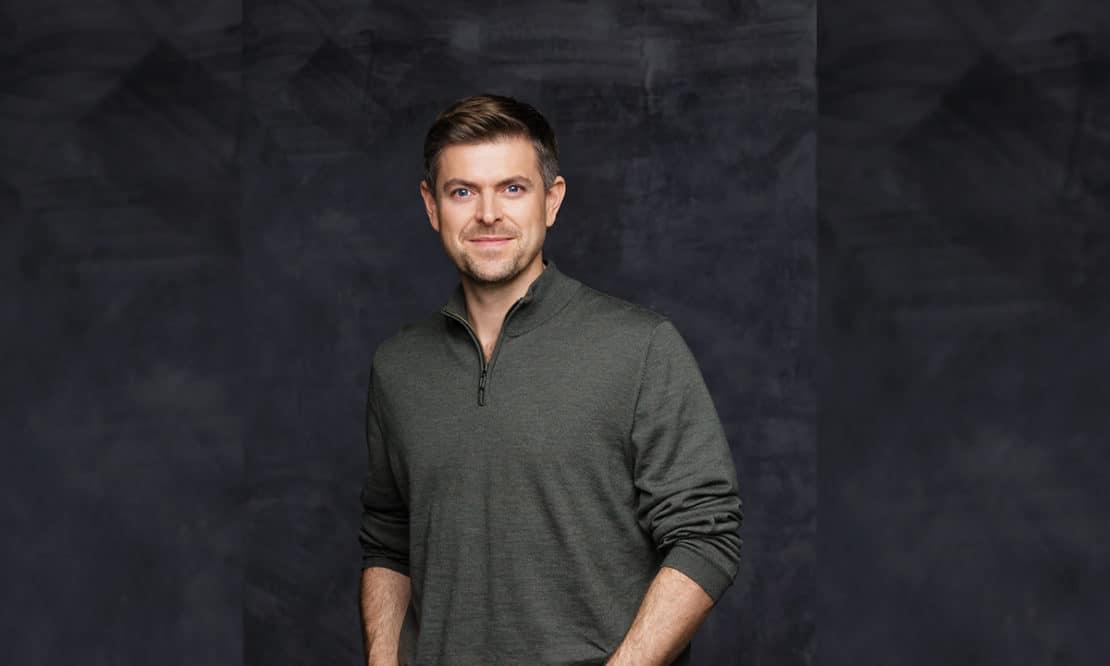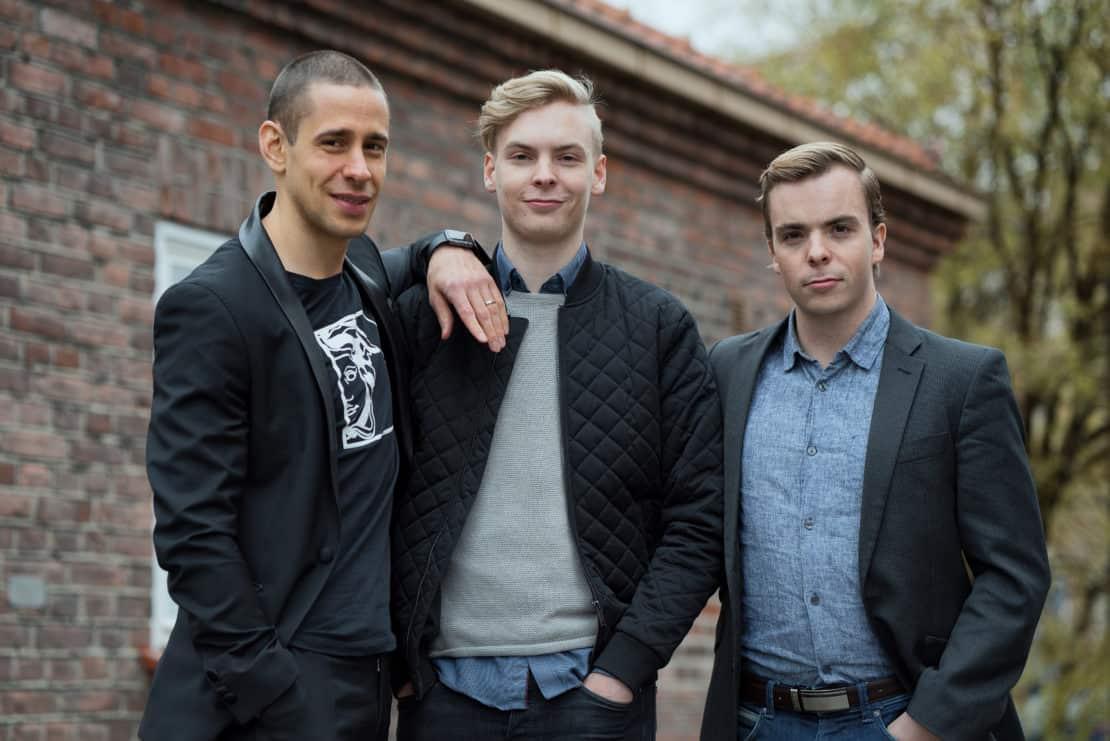28Nov2016
Few people, if any, in the Baltic countries can rival Ilja Laurs in high-tech entrepreneurship. The length of the trail he has blazed and the depth of his thinking has catapulted him to top level global telecommunication events worldwide, with the BBC, Forbes, The New York Times, USA Today and other media outlets queuing for his insights.
Accomplishments of Laurs, a native Lithuanian of Dutch descent and co-founder and CEO of Nextury Ventures, a venture capital fund that invests in early stage startups and new fast growth and high potential value ideas, have brought him major international rewards to be envied by many others from much larger technological superpowers than Lithuania.
A living business prodigy, he became European Manager of the Year 2011, an acknowledgment Laurs obtained from the European Business Press Association. He was put on the list of Top 25 European Tech Leaders by Wall Street Journal and was included among the Top 40 most influential people in world mobile communications by Informa Telecoms and Media.
Prior to this, Laurs founded and headed GetJar, another headliner as the biggest open app store in the world and the world’s largest open mobile application platform, playing in the same field as industry heavyweights such as Apple, Google, Microsoft, and Nokia. Time Magazine featured Ilja with GetJar as one of “10 start-ups that will change your life“.
Born in 1976 in Lithuania, Laurs reminisces the Soviet Union and the Baltic country’s fight for its independence. Having enrolled in an American student exchange program and graduated from Jackson High School in Ohio in 1994, he came back to a free Lithuania to attend Vilnius University where he studied Economics, paying the bills by teaching schoolchildren English. Laurs has under his belt over 10 successful projects, as diverse as Lithuania’s largest hotel reservation system, LithuanianHotels.com, mobile payments system MicroPay and mobile games studio Midas Mobile.
Nordic Business Report: When you were recently bruised by a bus in an accident in Vilnius while riding your bike, many were scratching their heads in disbelief, wondering why a multi-millionaire like you wasn’t driving around in an armored vehicle. You have to agree you present a very different image of a Lithuanian businessman!
Ilja Laurs: Indeed, there are still quite a few stereotypes here with regard to how business, art or sports celebrities have to behave, wear and what not. Yet the image of a fat cat with servants and a posh home, a limo in the private parking lot and an enviable bank account is nowadays a remnant of the old-fashioned perception of a businessman, which is still all too common.
However, over the last couple of years a lot has changed in the business mentality, so seeing a respectable investor riding a bike, not somewhere in London but in central Vilnius, is becoming a usual sight.
Perhaps it is part of the mentality crammed into our heads in early childhood during the Soviet era that personal happiness comes with wealth foremost. But once you’ve got some material in your life, you start looking for Nirvana, which is never about the bank account but it can be escaping into Mother Nature, for example.
NBR: How is business mentality changing in Lithuania?
IL: The bottom line is that many of the people out there who see themselves as businessmen, do not grasp what is the core of a business philosophy and mentality.
Unfortunately, there are plenty of people out there who believe that the essence of a business is to succeed in creating an efficient operational system that earns a lot of money and makes one rich. This is a very old-fashioned understanding, stretching back centuries, of what makes a good entrepreneur. Yet the aforementioned perception is still rather widespread nowadays, unfortunately, especially in the rural areas.
With the arrival of technologies, new high-tech businesses are permeated with quite a different mindset and, as a matter of fact, are run rather similarly to the best Silicon Valley companies, adopting their respective business mentality.
Nowadays, most startup founders are quite fine with generating losses initially, because of two things. Firstly, accumulating debt at the start of a startup is seen as absolutely inevitable before the business takes off. Secondly, if you, as a startup owner, have a surplus on your balance sheets, it means you’re not investing into its growth.
In other words, it is a sign that you may be lagging behind the pace of growth that other similar companies around the corner enjoy just because they invest all they have into growth.
What makes the IT sector peculiar is that different from a restaurateur who can do well with his restaurant being ranked amongst the 10 best, high-tech companies must be on the very top to reap the fruits. Being No2 or No3 does them little good.
So at the end of the day, it is all about risks, which in the case of tech companies, are extremely high. The majority of high-tech startups hit a snag at the outset and eight out of ten of them won’t make it during the first years.
So to wrap it up, the new age has brought new business models, and even a street vendor out in the sticks has to pay attention to the trends.
NBR: How is the Lithuanian business environment different from that in neighboring Latvia or Estonia?
IL: Perhaps I cannot discern any meaningful differences between Lithuania and Latvia as both countries share a lot in common as close neighbors.
Estonia, however, has been different due to its close-knit ties with Nordic countries and Finland. Because of the Nordic, and, foremost, Finnish impact, Estonia leads the ranks on many economic parameters and does quite well compared with EU old-timers. For example, Estonia is among the five leading EU countries in investment in innovations, which is a superb achievement.
This just is not the case with 99 percent of Lithuanian startups.
The deeply rooted in consumption mentality today discourages one from investing into a time and resources demanding gambit like a startup.
Life is all about consumerism, not the accumulation of capital for investment. So to wrap up, many people in Lithuania, as elsewhere, just cannot afford it and, therefore, stick with an activity that produces a quick yield, like a salary at a regular job or business.
NBR: How do you bring out the optimal performance from hundreds of your employees scattered all over?
IL: What I want to point out is that as an investor in startups, I’ve not assumed the role of the employer, CEO or whatever big title you can think of, but, note, the role of an investor.
There’s a big difference between being the employer and the investor, believe me. The former could be likened to being an aircraft pilot who is responsible for anything in the air; the latter, meanwhile, works as a good and reliable chaperone, providing necessary resources and so on. So what I am interested in as the investor are the ultimate results, not anything else.
NBR: What kind of startups is Nextury Capital zeroing in on? What is the line between a promising new business and the one able to shine around the globe?
IL: Before answering, I’d like to point out to two key things. First, I want to shatter the myth that an investor, like a doctor, sits in his office and meets all the patients, i.e. startup founders, each with his or her own idea, listens and decides whether to invest or not. We are not operating that way.
Our daily mission is all about insightfully envisioning potential breakthrough fields on the technological horizons that have the potential to dramatically change the world over the next five years.
Among the existing high-tech 3D technologies that enable one to mint a wedding ring of a quality that a goldsmith would envy and some of the healthy lifestyle and fitness gadgets, ranging from the ground-breaking pulse measuring apps to the digital weight-loss gizmos stuffed in the watch on your wrist, did just that, i.e. changed the world. It is those types of visionary business ideas we are aiming for.
To further tap into the idea of 3D printing, the next step might be manufacturing licensing, authorial rights and sales issues, all of which have been little addressed until now and which, therefore, lure investors willing to patch up the gaps.
Another thing we attempt to determine after spotting a cutting edge technological field or activity is what kind of a business model suits the entrepreneurial idea best.
NBR: How important do you believe a business idea is? Is success about having the right business idea?
IL: This is another myth I want to shatter. Believe me, but the value of an idea is zero. Look, if I say that I want to assemble a paper-thin TV set, the idea is worth nothing. But if somebody does succeed in manufacturing such a TV set it will conquer the word in the matter of weeks and months, the way the cell phone did.
To go back to your previous question on what kind of startups Nextury Ventures is looking for, all those 200 applications that we on average receive every week and all of which aim to prove their ingenuity as far as the business idea is concerned are being filtered through the aforementioned layers: their ability to perform in the long run, feasibility and the availability of human resources ready to take it up.
NBR: Do you hire top-level executives yourself, or do you rely on human resource companies? What traits do you look for in a new employee?
IL: I try to be part of the hiring, but due to a shortage of time, I cannot weigh in on every applicant. Nevertheless, I get to speak to a dozen potential managers of startup businesses almost every week.
Talking about my involvement in the hiring process, I tend to look for two things in the candidate. First, how tolerant is he or she is to the risks of business. Needless to say, a business is all about taking risks. In fact, I’m embracing the quasi-scientific idea of “wanderlust gene”, which says that some people are more predisposed than others to leaving their usual habitats and ambits and taking risks. So it’s that kind of trait- or “wanderlust gene”- that I am always looking for in a person of interest.
The second essential trait to me is the degree of responsibility in a person that is being considered to lead a business. I think that, similarly to taking a risk, people either are inclined to take responsibility or not. I don’t think there’s something in between.
All the other personal characteristics are, to me, not as important as these two: the capability of taking risks and being responsible for the team and actions. Visionary thinking, without saying, is also a must. The good news is that, nowadays, you don’t have to be a Rockefeller or Napoleon type to succeed in business.
NBR: Can you mention a startup that, with your chaperoning, has taken off far?
IL: Some of Nextury Ventures investments have had a thousand-fold yield by now, as a matter of fact. We measure the success of our investments with a so-called “follow-up funding ratio”, and on this measure, we’re currently at 40% with a clear path to 80% range in the next 1-2 years. For comparison, the similar average ratio of startups not within the Nextury Ventures network is around 1-2 percent.
As investors, we do not only help with the pecuniary resources, but also marketing, human resources and so on. Believe me, every time I have the possibility to put my hands on any of the activities aiming to give a boost to a new business I feel fired up. So you can see me at very different stages of a new startup’s run-in process.
NBR: As the modern business world emphasizes human relations and embraces shorter workday hours, which is what Scandinavia, for example, does, Lithuania seems to be underscoring the traditional business values. Would you have any advice for Lithuania’s political elite in that regard?
IL: To be honest, I find some of the regulatory planning commands being given from the top rather weird and unacceptable in today’s business environment. Such commands, in whatever shape they come, are at their core remnants of the past.
How on earth can regulators today tell anyone how long they have to work? Only the Soviets in the planned economy could want to do that. Today’s economic and working relations are all about having free will and flexibility, which are the prerequisites for the success of a business.
I like the practice of the United States, where top-level managers work up to 100 hours a week until their 30’s and thereafter some of them have earned enough to loosen up or even retire and do whatever they want in their lives. They can plan families between 30 and 40 and after their 40’s they devote their time to their hobbies or other lifestyles.
This is something we ought to think about in Lithuania.


 by:
by: 